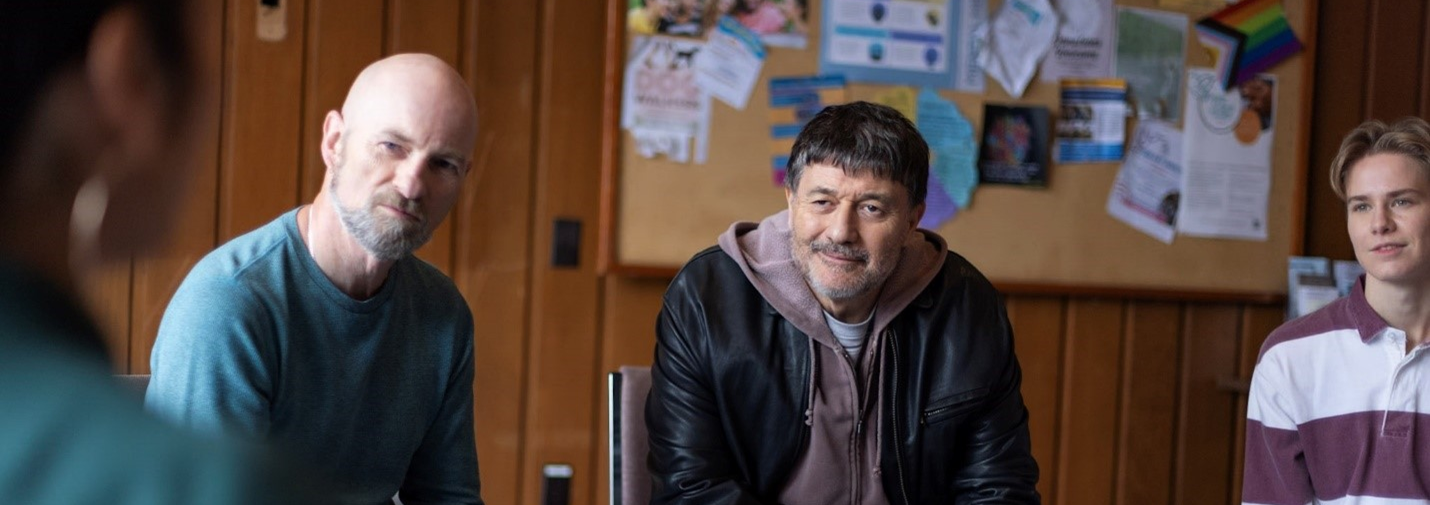B.C.’s response to the toxic drug crisis
Discover how B.C. is expanding addictions services to keep people safe and connected to care.

Find supports that work for you
There are no one-size-fits-all solutions. Everyone’s story is unique. In B.C., there are a growing number of supports.
-
Call the Opioid Treatment Access Line at 1-833-804-8111 for same-day care for opioid addiction.
-
If you use drugs, do not use alone. Find ways to stay safer at HelpStartsHere.gov.bc.ca/StaySafer.
-
Learn how to spot the signs of an overdose and respond at HelpStartsHere.gov.bc.ca/StopOverdose.
-
Learn about how to access treatment and recovery services in your community at HelpStartsHere.gov.bc.ca/Recovery.
-
PharmaCare covers the cost of most opioid agonist treatment (OAT) if you're enrolled in BC's Medical Services Plan. Learn more about PharmaCare coverage.
What we are doing
B.C. is expanding mental health and addictions services with options for care to help people stay safe and find what works best for them.
B.C.’s Recovery Model
In 2023, the government of British Columbia has launched an innovative approach to addictions care called Road to Recovery. This model is designed to offer seamless care that fits each person’s unique needs.
We know that recovery can be challenging, and it isn’t always a straight path. Road to Recovery aims to make it easier to talk to someone about your treatment needs and get connected to care. Learn more about Road to Recovery.
Reducing deaths and keeping communities safe
B.C. has a range of approaches aimed at helping keep people who use drugs safer and reduce their risk of death or other harms from toxic drugs.
-
Drug Checking
Drugs can be tested to see what’s really in them, which helps people make informed choices about how and what they use. Learn more about drug checking or find drug checking sites near you. If your drugs were not dispensed by a pharmacy—e.g., bought on the street or through a friend—you don’t know for sure what’s in them.
-
Drug Alerts
Drug alerts in B.C. warn the public when dangerous or toxic street drugs are found in a community. These alerts help people stay safe by sharing real-time information about unusual reactions or concerning drug samples that could cause overdose or other serious harm.
Text ‘JOIN’ to get toxic drug alerts ALERTS (253787) anywhere in B.C.
-
Lifeguard App
The Lifeguard app can contact emergency services if someone doesn’t respond after taking drugs. You can download the app for iOS (Apple) or Android phones.
-
Overdose Prevention Services
Overdose prevention services give people a place to use drugs in the presence of a health professional. They can provide people with supplies like clean needles and contact emergency services if someone seems to be overdosing. Many overdose prevention services also provide drug checking, as well as referrals to other health services and treatment supports. Find overdose prevention sites near you.
- Spot the Signs of an Overdose and Respond
Learn about how to help if someone is having an overdose. Be prepared to spot the signs and respond.
-
Naloxone
Naloxone is a medication that can help reverse overdoses. You can get a naloxone kit to carry with you for free. Learn more about how to respond to an overdose using naloxone.
-
Decriminalization
In 2023, the province launched the pilot program to decriminalize people who use drugs. It was intended to make it easier for people struggling with addiction to come forward for help.
B.C. will not be requesting renewal of the exemption after it expires on January 31, 2026.
-
Prescribed Alternatives and Witnessed Dosing
Doctors and nurse practitioners can prescribe medications to help protect people with substance use disorders from drug poisoning, injury, or death, and to connect them to other care and support. B.C. uses a witnessed dosing model, where the consumption of these prescribed alternatives must be supervised by a health-care professional.
Learn more about B.C.'s escalated drug-poisoning response actions or ways to stay safer if you use drugs.
